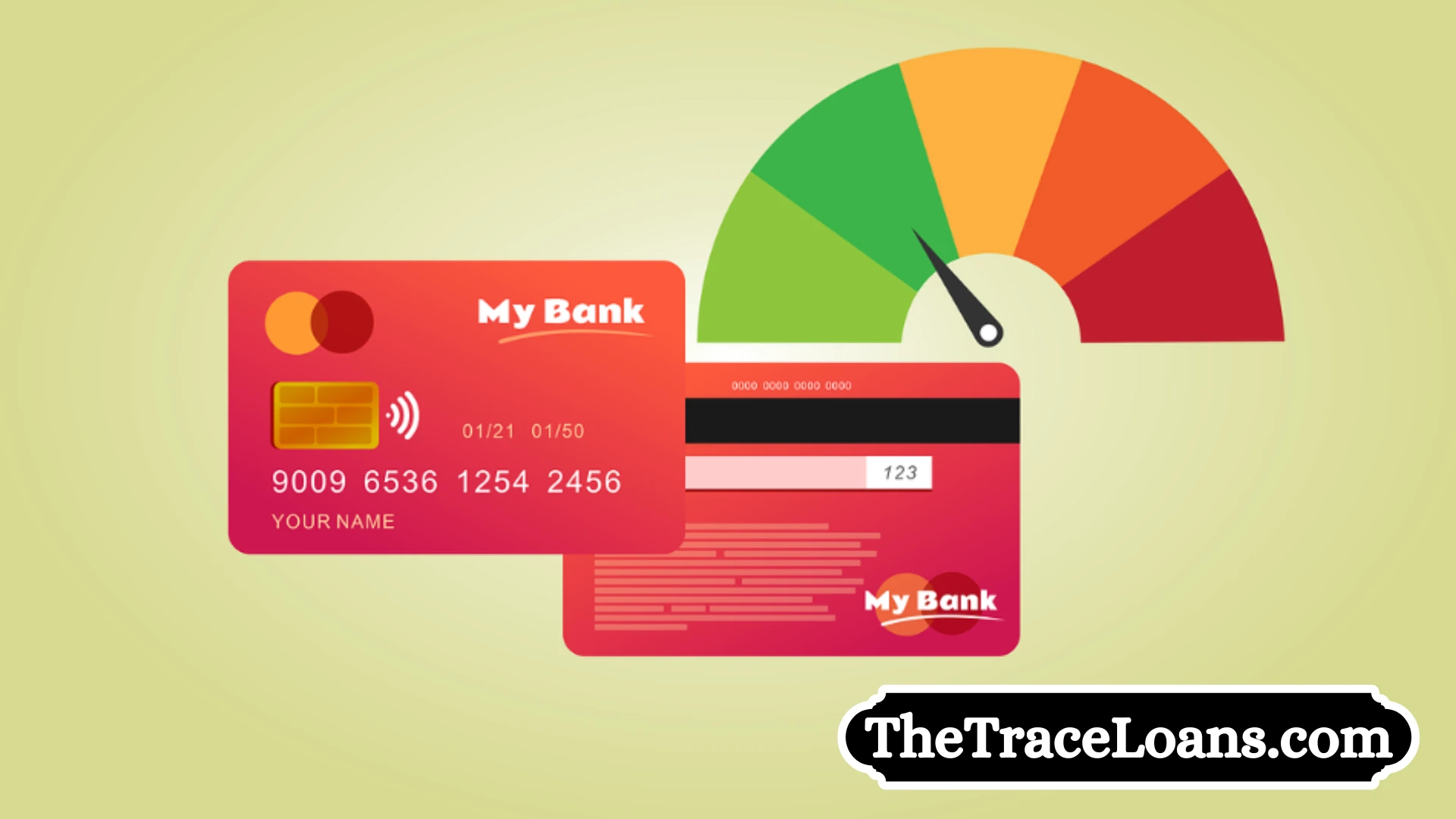Having a good credit score means you can manage and pay debts Consolidation easily. A credit score is a mark of one’s financial literacy: able to show how good or bad someone is with their finances. This score determines how much faith you can place in someone through a bank or financial institution to repay loans, whether cash or credit cards.
Higher scoring translates to lower interest rates on loans. In contrast, the lower scoring will become an obstacle in getting loans. At TraceLoans.com, we will interpret a credit score and help improve it. Whenever a loan application arises or buying a new house is planned, please remember that this stage in life will afford you real benefits associated with financial wellness, including credit scores.
We will teach you what impacts your score, how to raise it, and the general pitfalls most people encounter in sustaining their credit score. Good credit cannot be built in a day, but if you do the right things, you can see some real differences. Join us as we explore all things credit score and take charge of your financial future!
Traceloans.com Credit Score Calculator
Credit Score Estimator
What Is Credit Score?
The credit score indicates how well you have handled money and repaid borrowed amounts. It is like a grade in school for your finances. This score helps banks and other institutions to gauge whether they should lend you money or grant you a credit card.
The higher the score, the more the chances of having their trust in disbursing loans to you. The factors taken into consideration for calculating your credit score are:
- Payment History: Do you pay your bills on time?
- Amounts Owed: How much money do you already owe?
- Length of Credit History: How long have you been using credit?
- New Credit: Have you recently applied for new credit accounts?
- Types of Credit Used: Do you have a mix of credit types, like credit cards and loans?
By understanding and tracking your credit score, you can make better choices to keep your finances healthy.
How to Check Your Credit Score?

- Visit TraceLoans.com
- Create an Account
- Navigate to the ‘Credit Score’ Section
- Provide Necessary Information
- View Your Credit Score
To check your credit score through TraceLoans.com, first visit the website. If you don’t have an account, please create one by entering your email and password. Existing members can log in at once. Once you’re in, look for Credit Score in the menu or dashboard or Check My Credit. You may be required to provide personal information such as your full name, date of birth, and social security number for identity verification.
Afterward, your current credit score will be displayed on the screen. Keeping your credit score in check is essential for effective financial management, as it determines your creditworthiness and suggests areas to work on. Don’t break a sweat—checking your score does not lower it! However, if you still have questions, please visit the FAQ page.
How To Improve Credit Score?
- Pay Bills on Time
- Keep Balances Low
- Don’t Close Old Accounts
- Limit New Credit Applications
- Check Your Credit Report
You must pay your bills on time and in full to improve your credit score. Late payments will damage your credit score, with report records lasting for many years. Also, keep your credit card balances low; the best practice is to use your available credit at less than 30%. If you have obtained yours for over ten years, keep your old credit accounts open, as longer histories can only help your credit score.
Apply for credit accounts judiciously–making too many hard inquiries in too short a time will negatively impact your score. Finally, stay on top of checking your credit report for inaccuracies; correcting these found inaccuracies would further assist in improving credit. Your good credit will translate into solid financial opportunities once you flesh out your score using the preceding methods.
Common Credit Score Myths
Understanding credit scores can be tricky, especially with many myths floating around. Let’s clear up some common misunderstandings:
- Checking Your Credit Score Lowers It
- Closing Unused Credit Cards Improves Your Score
- Carrying a Balance Boosts Your Credit Score
- Your Income Directly Affects Your Credit Score
- Co-signing doesn’t Impact Your Credit
Many people believe that checking into their credit score will have the effect of lowering it. The answer is no. You can check your score as much as you want, and it won’t damage it. Closing old or unused credit accounts will be helpful to their score. Closing old or unused credit accounts will reduce your available credit and shorten your credit history, which could lower your score.
Another misconception is that paying a balance on your credit card helps improve your score. While paying in full each month will help most, carrying a balance can trigger interest charges, which does nothing for your score. Many individuals think that higher earnings will make their score higher, but it’s not something considered in a credit score.
Finally, when co-signing for a loan, note that the responsibility is your own; a missed payment can even hit you, meaning your credit score will be lowered. Know the above and control your credit appropriately.
Credit Score Ranges
Understanding credit score ranges can help you know where you stand and how lenders view your creditworthiness. Here’s a simple breakdown:
| Credit Score Range | Rating |
|---|---|
| 800 – 850 | Excellent |
| 740 – 799 | Very Good |
| 670 – 739 | Good |
| 580 – 669 | Fair |
| 300 – 579 | Poor |
These ranges are often found in scoring models like FICO and VantageScore. With higher scores, lenders have a greater belief that you will be able to repay borrowed money in a timely fashion, thus improving terms and interest rates on loans. In contrast, with lower scores, credit will be more complex to obtain and may mean higher borrowing costs. Keeping a close watch on the credit score and understanding these ranges will allow for informed financial decisions.
Benefits Of Using Traceloans.com Credit Score
Using TraceLoans.com to monitor your credit score offers several advantages:
- Tailored Loan Options
- Educational Resources
- User-Friendly Interface
- Regular Updates
- Enhanced Financial Planning
TraceLoans.com offers loan products to all individuals with various credit scores and credit histories, right down to those with less-than-perfect credit histories. It provides helpful materials for users to understand and learn tips on building credit. User-friendly navigation of the site aids in accessing your credit information.
Updates will inform you about necessary changes to your credit score and allow you to prepare and bear the financial consequences. With those features, you can make winning decisions and work hard to achieve good financial health.
Things To Consider
When using TraceLoans.com to check and manage your credit score, keep these critical factors in mind:
- Accuracy of Information
- Security and Privacy
- Impact on Loan Approvals
- Credit Score Updates
- Financial Goals
The validity of the details is necessary in a credit report; even a little mistake can ruin your credit score. Ensure you keep your data safe by utilizing only authentic sites like TraceLoans.com. Remember, if your credit score is good, it will help you get loans approved with better terms.
Credit scores are updated based on any financial activity, so keep checking yours for insight into your progress. Finally, set financial goals- whether a house, a car loan, or your overall credit health. Knowing the score will help you enhance your credit usage and make wise financial choices.
Impact of Bad Credit on a Loan
When you have bad credit, getting loans or credit cards becomes complicated. Even if approved, you’re looking at a higher interest rate, meaning you will spend more money over time. For instance, if you are getting a car or house, the interest factor with a low score will reflect higher monthly payments.
Also, some landlords check the credit score before renting out their apartments, so a low credit score might be against you while looking for places to call home. Insurance companies use credit scores to set insurance rates; therefore, a low score will mean a higher premium to pay as well for car insurance.
Some employers look at credit scores for hiring purposes, which means having a bad score will impact your job potential, too. Please understand how your credit score impacts different areas of your life so that you can take measures to improve it.
How To Monitor and Protect Your Credit?
Monitoring and protecting your credit is essential for maintaining financial health. Here are some key steps to help you stay on top of your credit and safeguard your personal information:
- Regularly Review Your Credit Reports
- Use Strong Passwords and Multi-Factor Authentication
- Keep Your Personal Information Secure
- Enroll in Credit Monitoring Services
- Consider a Credit Freeze or Fraud Alert
With regular checks on your credit reports, you should be able to fix issues that crop up faster. Strong, unique passwords boosted with multi-factor authentication further lock down access to your financial accounts. Keeping your details secure, such as Social Security numbers and bank information, protects against unauthorized access.
Credit monitoring could also send you alerts to your registered email address regarding significant changes to your credit report so you can act fast against fraud. If you suspect your personal information has been divulged, you should either freeze yourself or place a fraud alert to halt any new accounts from being opened in your name. By doing this, you monitor and protect your credit effectively.
Conclusion
The credit score governs a good deal of your financial life. It influences approval for loans, interest rates, and even employment opportunities. Understanding how credit scores function, checking methods, and ways to enhance them is vital information for making better financial decisions. TraceLoans.com lets you check your credit, access options for personalized loans, and be counseled by an expert for a more viable economic future.
Poor credit can mean higher borrowing costs, difficulty obtaining loans, and sometimes problems with housing and even getting jobs. But your score can improve over time with some good credit habits, like paying bills on time, keeping balances low, and checking your credit report regularly.
Equally important to building credit is protecting it. Your regular monitoring activities, strong passwords, and any credit alerts you subscribe to will provide extra security to prevent fraud from occurring and protect any critical financial information.
Taking control of your credit now will give you better opportunities in the future. So whether you are working to boost your score or trying to keep it safe, TraceLoans.com is there for you with everything you need.
FAQs
What is a credit score?
A credit score is a number that indicates your ability to handle money and pay off debts. Consider it a grade, only this time on finances. This is the score that banks and others will utilize to determine whether they will give you credit or a loan. The higher the score, the more likely they will concede to giving you their loans.
How do I check my credit score on TraceLoans.com?
First, visit TraceLoans.com to check your credit score. If you are new to the site, register with an email and password. An existing user can log in directly.
After logging in, look for the menu or dashboard options like ‘Credit Score’ or ‘Check My Credit.’ Personal identifiable information such as your full name, date of birth, and Social Security Number may be required to verify your identity. Afterward, your active credit score will show on the screen.
Will checking my credit score on TraceLoans.com affect it?
Nope. Checking your score with TraceLoans.com will not affect your score; it is treated as a “soft inquiry” and, thus, does not affect your credit rating.
How often will my credit score be updated on TraceLoans.com?
Credit scores are usually updated every month. You should check them regularly to see how financially healthy you are.
What factors influence my credit score?
Your credit score relies on factors like:
Payment History: Do you pay your bills on time?
Amount Owed: How much money is owed already?
Length of Credit History: How long have you been utilizing credit?
New Credit: Have you applied recently for new credit accounts?
Types of Credit Used: Do you showcase a mix of credit types, such as credit cards and loans?
How can I improve my credit score?
Improving your credit score entails:
Paying Bills on Time: Always pay your bills by their due dates.
Keeping Balances Low: Avoid using too much of your available credit.
Not Closing Old Accounts: Keeping older credit accounts open can help your score even if you don’t use them often.
Appointments for many new credit accounts in a short time negatively affect your score.
You must check your credit report regularly to see if everything is correct.
Can TraceLoans.com find loans for people with bad credit?
TraceLoans.com offers loan products that target the needs of borrowers with bad, poor, and bad credit.
Is my information safe at TraceLoans.com?
The safety of your personal information is of utmost importance, so make sure to use trusted sites like TraceLoans.com only. They have safety measures in place to protect your data.
Does TraceLoans.com provide information that can educate me on my credit score?
TraceLoans.com provides educational resources for users to understand their credit status better.
How does bad credit affect my ability to obtain a loan?
A low credit score can also make obtaining loans or credit cards challenging. Even when you get approved, you will have to pay higher interest rates to pay more money in the long run.

